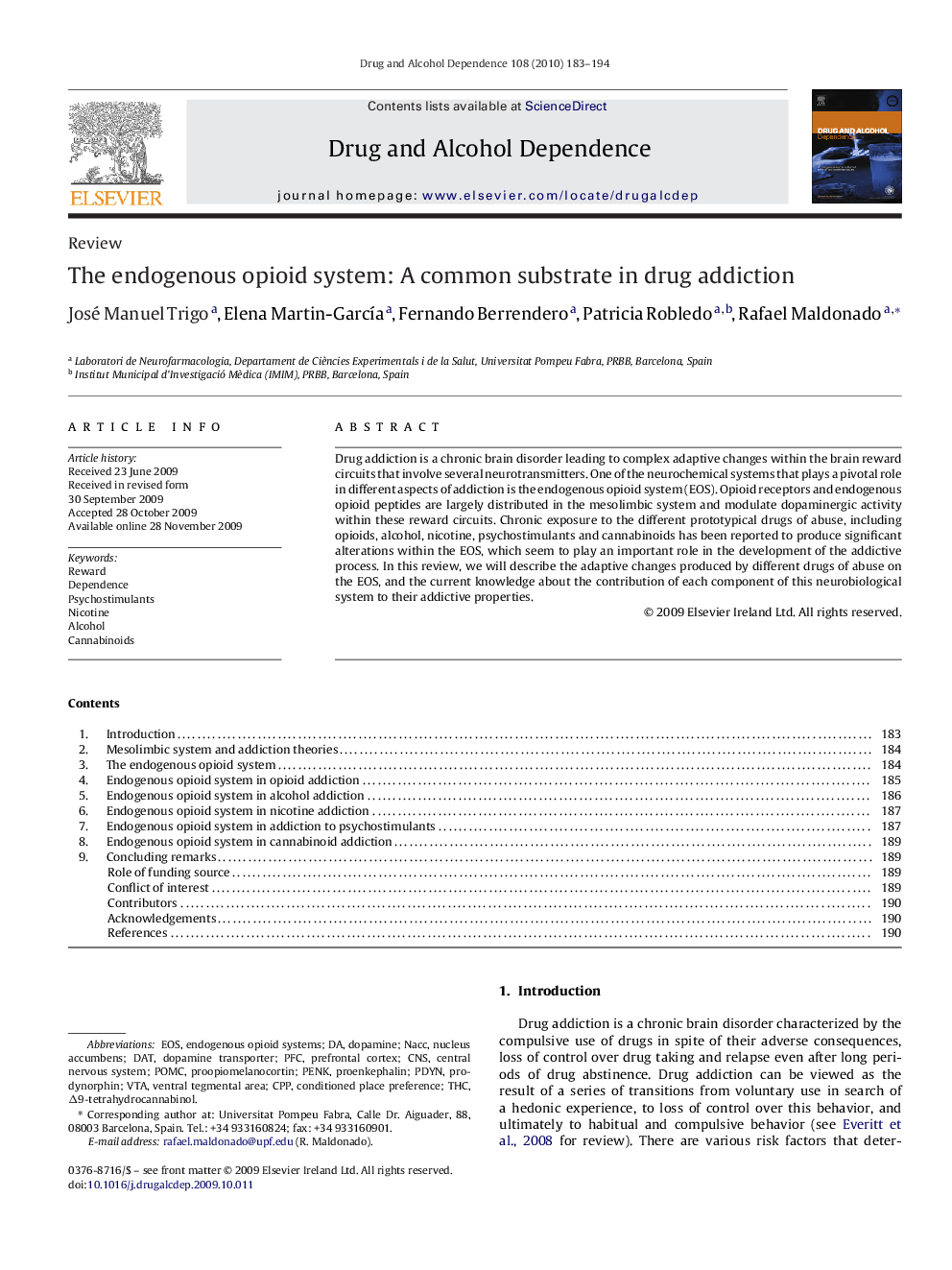| Article ID | Journal | Published Year | Pages | File Type |
|---|---|---|---|---|
| 1070382 | Drug and Alcohol Dependence | 2010 | 12 Pages |
Drug addiction is a chronic brain disorder leading to complex adaptive changes within the brain reward circuits that involve several neurotransmitters. One of the neurochemical systems that plays a pivotal role in different aspects of addiction is the endogenous opioid system (EOS). Opioid receptors and endogenous opioid peptides are largely distributed in the mesolimbic system and modulate dopaminergic activity within these reward circuits. Chronic exposure to the different prototypical drugs of abuse, including opioids, alcohol, nicotine, psychostimulants and cannabinoids has been reported to produce significant alterations within the EOS, which seem to play an important role in the development of the addictive process. In this review, we will describe the adaptive changes produced by different drugs of abuse on the EOS, and the current knowledge about the contribution of each component of this neurobiological system to their addictive properties.
